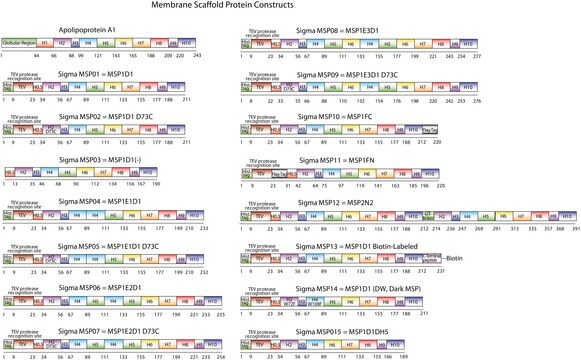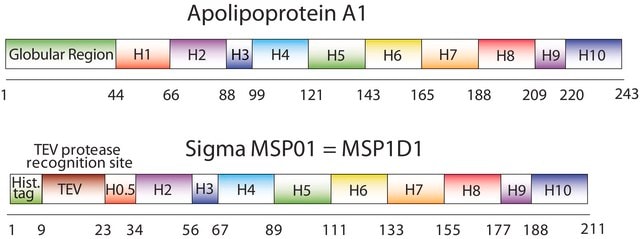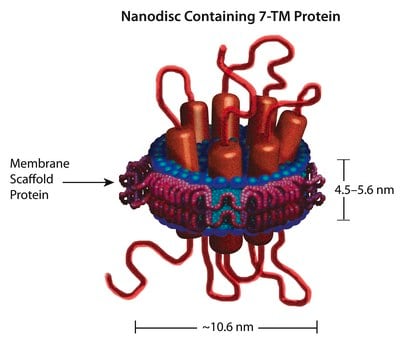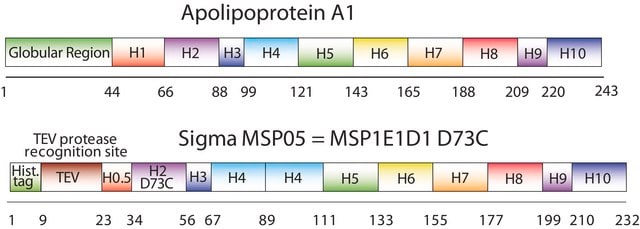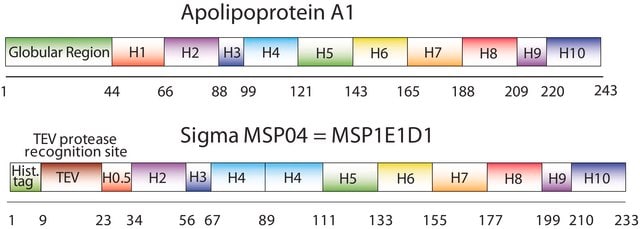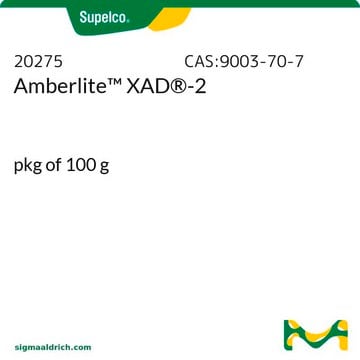MSP03
Membrane Scaffold Protein 1D1(-)
recombinant, expressed in E. coli, buffered aqueous solution
Synonym(s):
Membrane Scaffold Protein
About This Item
Recommended Products
recombinant
expressed in E. coli
Assay
≥90% (SDS-GE)
form
buffered aqueous solution
mol wt
22,043.9 Da
solubility
water: soluble
shipped in
ambient
storage temp.
−20°C
General description
Application
Biochem/physiol Actions
Legal Information
- 7,691,414 Membrane scaffold proteins
- 7,662,410 Membrane scaffold proteins and embedded membrane proteins
- 7,622,437 Tissue factor compositions and methods
- 7,592,008 Membrane scaffold proteins
- 7,575,763 Membrane scaffold proteins and tethered membrane proteins
- 7,083,958 Membrane scaffold proteins
- 7,048,949 Membrane scaffold proteins
Storage Class Code
12 - Non Combustible Liquids
WGK
WGK 2
Flash Point(F)
Not applicable
Flash Point(C)
Not applicable
Certificates of Analysis (COA)
Search for Certificates of Analysis (COA) by entering the products Lot/Batch Number. Lot and Batch Numbers can be found on a product’s label following the words ‘Lot’ or ‘Batch’.
Already Own This Product?
Find documentation for the products that you have recently purchased in the Document Library.
Customers Also Viewed
Protocols
Nanodisc technology aids membrane protein solubilization, overcoming associated challenges in diverse protein classes.
Nanodisc technology aids membrane protein solubilization, overcoming associated challenges in diverse protein classes.
Nanodisc technology aids membrane protein solubilization, overcoming associated challenges in diverse protein classes.
Nanodisc technology aids membrane protein solubilization, overcoming associated challenges in diverse protein classes.
Our team of scientists has experience in all areas of research including Life Science, Material Science, Chemical Synthesis, Chromatography, Analytical and many others.
Contact Technical Service